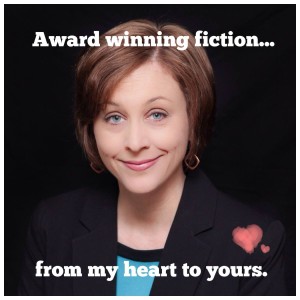-
Continue Reading "How to Ruin a Book at the Last Minute: Part 2, The Art of Denouement"
How to Ruin a Book at the Last Minute: Part 2, The Art of Denouement
 Welcome back to my series on writing great endings. This week, I’ll be talking about a misunderstood but vital part of any story, the denouement.
Welcome back to my series on writing great endings. This week, I’ll be talking about a misunderstood but vital part of any story, the denouement.The Google dictionary definition of “denouement” is “the final part of a narrative in which the strands of the plot are drawn together and matters are explained or resolved.” “Denouement” is one of those literary words that most of us learned somewhere in high school or college English classes and then filed away along with “synecdoche” and “antithesis” to be trotted out when we need to sound smart, but whereas you could probably write a pretty great novel without being able to identify the areas where you used antithesis, it’s REALLY hard to end a book well without having more than a dictionary understanding of the functions of a denouement.
Think of the denouement as “the beginning of the end.” If you’re plotting the arc of a story or plot, the denouement appears right after the climax and generally encompasses everything else taking place between the climax and the end of the story. Let’s start by looking at the jobs a denouement needs to do:
- Resolve the events of the climax. If the climax occurs when Slim pulls Sue off the railroad tracks seconds before the train thunders by, we don’t have to see every second of what happens next, but we would eventually like to know how they made it back to town after Slim’s horse ran off, how Salty Sam was finally apprehended, and whether or not Slim’s sidekick died of his rattlesnake bite. The actual top-of-the-tension moment is when Sue and Slim declare their love seconds before they might be smushed by the train, but these other events were all pieces of the climactic scene and the scenes leading directly up to it, and the reader wants to know how they turned out, even if it’s in a paragraph of narrative at
-
Continue Reading "Ask the Agent: Book groups and great books"
Ask the Agent: Book groups and great books
We’ve tried to tackle a bunch of questions quickly this month…
“I want to start a monthly fiction book club to bond members of my writing group. Do you have any suggestions? I thought about reading a book together, then critiquing it so members can learn how to write better. For example, how does a fiction writer work in a description of his characters, or how does the arc of the story change from beginning to end? Any suggestions?”
Yes. Give people plenty of time to read the book. Start with a book you know well and have studied, so that you can intelligently talk it through. Consider bringing in an outside editor or a high school or college writing teacher, who knows the book you’re talking about and uses it in his or her classroom. Choose novels that have clear strengths to them at the start, so that you don’t go too deep, too fast. If you’re reading a contemporary book, think about trying to bring the editor or even the author into your group via phone or Skype, to talk about the artistic choices they made. Let someone else lead the discussion sometime, since we all learn best when we have to teach the material.
“Do you know of any successful book clubs led by writers and what is the key to their clubs’ success?”
Sure – there are a lot of successful book clubs led by writers. I think some of the keys to success is to have a diverse group, rather than having it just be your close friends. Diversity will bring more life to the discussions. Figure out ahead of time what sort of group you want this to be. In other words, what is the atmosphere we want to have? Scholarly? Bonding? Social?
Pick a time and place, let the group select the books you’ll all be reading well in advance, and don’t
-
Continue Reading "Mystery vs Suspense… What's the difference? (a guest blog)"
Mystery vs Suspense… What's the difference? (a guest blog)
I started out my career writing mystery and now I write mostly suspense novels. What is difference between mystery and suspense anyway? It’s a question I hear often. I suppose I ought to know the answer since I’ve written twenty plus books in the suspense genre. I tell folks who ask that suspense is a situation in which the stakes are high and some is usually running for their lives. Yes, stakes are high in mystery, too, but there is not the same level of danger to the protagonist. It’s more about solving the puzzle, than survival.
Creating suspense is trickier than it sounds for the hardworking author. Conflict is not the same as suspense and neither is surprise. Those are lessons I’m still learning! A while back I stumbled across an interesting view from the master of the genre, Alfred Hitchcock. Hitchcock’s idea was that the difference between surprise and suspense has to do with what the audience knows. Surprise occurs when something we don’t know is going to happen, does. For example, a car bomb goes off. Suspense is when the audience knows and watches it play out on the unwitting protagonist. “Don’t turn that key,” we silently shriek, wondering if what we know is going to happen actually does. The bomb doesn’t necessarily have to explode, but the suspense comes in our knowledge that it most likely will.
So what do you think? Does Hitchock’s analysis work for you? What suspenseful book or movie have you seen recently?

——————–
Dana Mentink is an award winning author of eighteen mystery and suspense novels. She is honored to have received an ACFW Book of the Year nomination, a Holt Merit Award, a Romantic Times Reviewer’s Choice Award and two ACFW Book of the Year Awards. Please visit her on the web at www.danamentink.com or find her on Twitter, Facebook or Pinterest. Dana hosts monthly contests at www.dmentink.wordpress.com.
-
Continue Reading "Ask the Agent: If I have a contract in hand…"
Ask the Agent: If I have a contract in hand…
Some fascinating questions have come in recently…
“I know of several agents who edit or write on the side. Is there anything wrong with that?”
I’m on record as having said, “You’ll do best if you find a full-time agent.” But I also recognize the times are changing – now we’re seeing agents help authors self-publish, or help with marketing plans, or have some other part-time position, so I know our role has changed. An agent who also edits or writes on the side has become fairly common. My feeling is that those agents need to be careful not to mix the two – and I’ll use myself as an example. While I will always go through a proposal and make sure it’s strong, editing and tweaking as necessary, I don’t freelance edit. I tell authors that my company is not an editorial service, so if they need a full-blown developmental edit, they’re better off hiring a freelance editor. I generally will give authors three or four names of editors who I like and trust… but I always explain that I don’t care which editor the author approaches, and I’m always quick to say these people don’t work for me, and I don’t get a kickback for recommending any particular editor. So if an agent wants to do some freelance editing, I think they have to create a bright line about separating the two aspects of their business (I recently saw one agent tell authors, “I’ll represent this if you’ll hire me to edit it first”). They have to be very careful that they don’t try to sell their editorial services to clients, which will get them kicked out of the AAR. Similarly, I know of a few agents who also work as freelance writers. So long as they’re not selling their writing services to clients, and basically running two separate businesses, I think they can make that work. I
-
Continue Reading "How to Ruin a Book at the Last Minute: Part 1, The Importance of Endings"
How to Ruin a Book at the Last Minute: Part 1, The Importance of Endings
 I’m starting a new series today, one that will last until I run out of things to say on the topic or until I get bored, whichever comes first. I’ve received several ending-related questions over the past few weeks as well as been disappointed by the endings of several otherwise-good submissions I’ve read lately, so I thought we’d spend a few weeks talking about how to end a novel as effectively as you began it.
I’m starting a new series today, one that will last until I run out of things to say on the topic or until I get bored, whichever comes first. I’ve received several ending-related questions over the past few weeks as well as been disappointed by the endings of several otherwise-good submissions I’ve read lately, so I thought we’d spend a few weeks talking about how to end a novel as effectively as you began it.There are a whole lot of resources out there to help you craft a dynamite beginning of a novel– plenty of “first five chapters” workshops, lots of conversation on the importance of a great opening sentence, a bunch of opinions on how soon in a book the action needs to kick off– but not as much attention paid to how to END a novel well. It makes sense; the beginning is what makes someone decide whether or not to keep reading, and therefore gets most of the responsibility for selling a book to an agent, editor, or reader, but too often, all this emphasis on the beginning of a novel leads to some neglected or rough endings by comparison, and endings are what make someone decide whether or not to look for another book from that author. If you’ve managed to entice a reader into picking up your book and making it all the way through, you want them to stick around longer than just that one book. This week, we’ll talk about how the end of a story and the end of a book are (or should be) connected, as well as preview some of the topics we’ll address over the next few weeks.
“When is a book done?” “When is a story over?” These questions came in separately, and while they’re asking about two different things, the answers are related. A complete story has been told when the major conflict has
-
Continue Reading "Ask the Agent: Piracy, Careers, and Marketing"
Ask the Agent: Piracy, Careers, and Marketing
A bunch of interesting questions have come in, so let’s get to them…
“Every couple months I find one of my novels online illegally as a free download. I complain, they usually take it down, and then someone puts it back up soon after. My publisher says they’re sorry, but it’s part of the biz. (I assume that’s true because they’re losing money too.) Are there any tech innovations that might prevent this?”
There are tech innovations that will locate a pirated manuscript, but I don’t know of any that will prevent it. And yes, this is a growing and annoying (and potentially expensive) problem in the industry. Pirated tracks helped kill the music business, and publishers tend to come down hard by threatening legal action against those who violate copyright. Publishers tried to protect themselves by using DRM with ebooks, but that has proven to be ineffective to stopping piracy. My guess is that the government will continue to seek out methods for strengthening copyright, just as pirates will continue to look for ways to cheat authors out of their rightful income. (I’m one of those who has no patience with people who want to illegally give away the artistic creations of others.)

“At the age of fifty I began writing professionally. I’m now past sixty, and over the last decade I have typically been able to bring in between $1500 and $12,000 a year via my writing, mostly through articles. I enjoy my full time job, and it fits well with my writing, so I do not foresee ever having a writing career or a platform sufficient to make an agent beg. Do I have a shot at getting an agent? If so, what can I do to improve the odds?”
If you are mainly writing articles, you don’t stand a great chance of landing an agent in today’s publishing world. But I know from your note
-
Continue Reading "Ten Lessons I've Learned (a guest blog)"
Ten Lessons I've Learned (a guest blog)
Before I opened my freelance doors for business, I worked as an associate editor for a small publishing house. Long before that I earned a degree in Journalism. But much of my training for my current job came from many hours writing fiction and working with my critique partners. Since I started this freelance venture, I’ve worked with all sorts of authors, newbies to multi-published veterans on multiple projects, fiction and non-fiction, in various genres—contemporary and historical, romance and suspense, memoir and magazine articles. As a writer, a critique partner, an associate editor, a copyeditor, and a freelancer, I’ve learned a few things.

- Talent matters. All great writers begin with talent. I can’t carry a tune, but suppose the height of my ambition was to become a famous singer. Suppose I took voice lessons and spent lots of money and time honing my skills? Suppose I spent thousands of dollars going to singers’ conferences (are there such things?) and hob-nobbing with the best? I might possibly be able to carry a tune someday, but would I ever be singing at Carnegie Hall? Heck, my church’s worship team wouldn’t even want me. I can become a better singer. But I would never be good enough for people to fork over hard earned cash to hear me. Hard as this is for some of us to hear, talent matters.
- Hard work is everything. I’ve seen many writers with only a modicum of talent transform their writing through sheer determination. These writers don’t rely on instinct. Rather, they work with good critique partners, question their editors, and subject themselves to arduous rewriting sessions. They don’t settle for that’ll-do writing. They read craft books, attend writers workshops, and devour great works. Eventually they hear the words, “You’re so talented.” And they are, but that talent would still be raw without these writers’ passion for excellence.
- Writing is hard. You’ve heard the joke about the
-
Continue Reading "Ask the Agent: Working with agents and others"
Ask the Agent: Working with agents and others
We’ve been getting a variety of questions about working with agents…
“I am seeking an agent for my new book and have created a website to promote it. What does an agent want to see on that website?”
A great design, that fits your brand, and makes potential readers like you. Specifically, I’d probably like to see some background or biographical material, introductory material on your books, your book covers and ordering information, media links, social media connections, and some sort of contact information.

“If an agent rejects your manuscript and has given some idea as to why, is it okay, after having done substantial revision, to re-query the same agent?”
It depends on the agent and the situation. In my experience, most people who have said “no thanks” aren’t going to be terribly excited about looking at the same project again, even if it’s revised. That’s why, if something intrigues me but just isn’t quite right or isn’t ready yet, I’ll often reject it and include a note that says, “When you’ve made your changes, feel free to run this by me again.” I like to make sure authors know when it’s okay to revise and come back. But what’s wearying is the author who sends something in, gets rejected, revises, sends it in again, gets rejected again, revises again, sends it in again… The fact is, some ideas don’t need revising – they need to be set aside so the author can write something else.
“I am working with a ghostwriter for my memoir. Will agents work with authors who use ghostwriters?”
Sure they will, if it’s done well. But the contemporary publishing scene is probably going to suggest the writer’s name is on the cover or title page as a collaborative writer, rather than having it hidden as a ghost writer. There’s nothing at all wrong with getting help on your manuscript from a collaborative writer.
-
Continue Reading "Ask the Agent: Children's books, writing coaches, & agents"
Ask the Agent: Children's books, writing coaches, & agents
We had a bunch of questions come in this past week, so let me get to several of them…
This came from a reader in the Midwest: “I’m at the point where I think I’d like to work with a writing coach. How can find someone reputable? Is there some sort of accreditation out there? Do you have any recommendations?”
That’s a wonderful question. I think a writing coach or mentor is a GREAT idea. Getting another set of eyes on your manuscript is always helpful, and finding someone who has experience, who is a little farther down the path, is one of the best ways to move forward in your writing career. I don’t know if there is any accreditation service of note (but I’d love to hear from readers who can suggest such a service), but there are a ton of experienced writers who serve in this capacity part-time, helping other writers who can benefit from their wisdom. I know of several, but it probably wouldn’t be fair to name one or two. Going through a reputable writing organization like RWA or SCBWI or ACFW is one way to find a good writing coach. Exploring some of the people available through Writers Digest or a good conference is another. But you may want to simply start asking around through writing friends or those at the next big conference you’re attending.
This question came in on the website: “I recently read somewhere that you don’t necessarily need an agent if you write for children, and that it might be better use of your time to submit directly to a publisher. Is that true?”
We have our own in-house expert on children’s books. Erin Buterbaugh handles all the chldren’s stuff for MacGregor Literary, so I posed this question to her. Here is Erin’s response:
I wouldn’t say having an agent is any more or less vital for a
-
Continue Reading "Using your Writing Group to Promote Literacy (a guest blog)"
Using your Writing Group to Promote Literacy (a guest blog)
I never have trouble getting up before my alarm rings on a Saturday morning. For one, I’m looking forward to my weekly blog, SATURDAISIES, to go live. And second, it’s time to get together with my writing group, The Flying M-Inklings.
Let’s do confessions, shall we?
If I ever walked into our beloved coffee shop, The Flying M, and some oblivious and under-formed new guy was sitting at our M-Inkling table, I would probably commit a crime.

(I’m not proud of it.)
But I’m kinda like the guy who walks into church on a Sunday morning to find that someone is sitting in his pew? Some oblivious and under-informed new guy and his wife – with four or five rugrats in tow? And the guy whose pew has been hijacked has to get his heart right with the Lord again because instead of being gracious and welcoming this new family into the church, all he really wants to do is clock him with a candle holder?
I would need a Divine intervention to stop me before somebody had to call the po-po… just sayin’.
Brilliance happens around our table. It’s where we M-Inklings make our plans and dream our dreams. It’s where we laugh and cry, sometimes at the same time. It’s where we write. I have christened that table, and it is ours. There’s no metaphor there – when we sneaked in a bottle of champagne to celebrate our one-year anniversary together, I popped the lid off of that sucker and the bubbly cascaded all over the table, the chairs, the floor, my lap… marking that sacred place. Ever since then, the Flying M-Inklings have made it a point to leave our mark wherever we go.
(There’s your metaphor.)
Your writing group should leave a mark on this planet. If your group has not considered how to promote literacy in your community and

